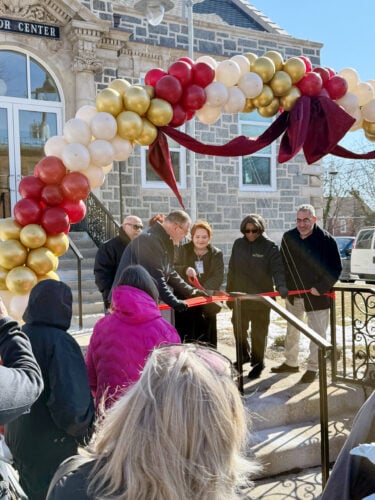Charles K., Jr.
The son of Vineland’s founder spent his professional life in Sea Isle City, where he specialized in real estate law.
It’s fair to say that Charles K. Landis Jr. never experienced the same spotlight as that of his father, founder of Vineland and Sea Isle City. But it’s probably also accurate to suggest that he never desired a life like that of the senior Landis.
Both father and son were lawyers by trade, but that’s where the parallels end. Charles Sr. turned his attention to founding and nurturing towns, writing both fiction and non-fiction and living the life of a businessman. His archives, consisting of essays, journals, short stories, a novel and documents of real estate transactions, are abundant and revealing. Charles Jr., on the other hand, left behind a much more limited paper trail.
Born in 1871, Charles Jr. was educated in Vineland schools and eventually enrolled as a member of the Pennsylvania Military Academy’s class of 1890 but did not graduate from the institution. Instead, he studied law and was admitted to the New Jersey bar as Attorney in 1892.
The following year, he married and, over the years, he and his wife, Mary, would have three sons and a daughter. Charles Jr. was admitted to the bar as Councilor in November 1895, and moved his practice to Sea Isle City, where he specialized in real estate law until his death in 1949. Beyond this, what survives of the specifics that comprised his life are considerably limited.
However, through two testimonials given in 1951, we can gain some insight into the lawyer and the person that was Charles K. Landis Jr.
Sterling W. Cole, who represented the Cape May County Bar Association at the Vineland Historical and Antiquarian Society memorial on February 14, 1951, said that while his former colleague was “basically well-grounded in the fundamentals of the law, he was never content to rest upon them alone, but painstakingly pursued their application to the particular case at hand by further study of textbooks and reports of adjudicated cases.”
Cole told those gathered that Charles Jr. had been “sincerely devoted in his attention to his honored profession, and he in turn was an honor to it. A man of integrity and purity of character, he carried those qualities into his professional life.”
Benjamin Stevens, a friend and former mayor of Vineland, offered his own recollections that day, telling the attendees, “He always stood ready to lay his work aside and go over any problem with any of the fraternity…He could cite the names of thousands of cases from memory and the ones he cited were always on the legal point in question. What would take the rest of us to study up was often recited by him in a few minutes without opening a volume.”
After moving to Sea Isle City, Stevens said, Charles Jr. continued to visit Vineland, arriving every Saturday after his father’s death “to work on the loose ends of the Vineland matters with his aunt, Matilda T. Landis and his father’s faithful secretary, Mrs. Katherine G. Montegelfe…” Following Matilda’s death, however, “he seldom came to Vineland,” preferring to leave any remaining matters in the hands of Stevens or others.
While Cole referred to Charles Jr. as displaying a “gracious manner,” Stevens used the terms “dignified” and “congenial,” but admitted that Charles “was considered by some to be rather unapproachable…”
And we learn from Cole that it was Charles Jr. who managed his father’s land holdings following Charles Sr.’s death. “He devoted much of his time to the management and sale of the extensive real estate holdings of his father’s estate,” Cole explained. “About 1908, he organized the Sea Isle City Realty Company, which developed the Venicean Park Section of Sea Isle City, one of the more attractive parts of the city.”









